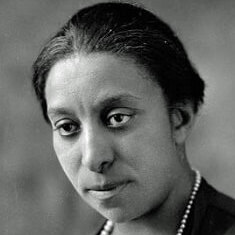by Hamilton J.B. Raymond
In the forever changing landscape of higher education and beyond, young Black men often face unique challenges that can hinder their academic, social, and professional development. Amid these many obstacles, Black Greek letter organizations have long stood as pillars of support, empowerment, and community. Giving a young Black man the opportunity to join a Black Greek letter organization offers an invaluable opportunity to enhance their personal growth, build meaningful connections, and contribute positively to both their university and society.
One of the major ways to help combat the obstacles young Black men face is by aligning themselves with a strong support system. Black Greek letter organizations provide a robust support system that can be instrumental in navigating the complexities of college life. For many young black men, entering a university, whether it be a Predominantly White Institution (PWI), Predominantly Black Institution (PBI), Hispanic Serving Institution (HSI), or a Historically Black College or University (HBCU) amongst others, entering college itself can be daunting and isolating. Black Greek letter organizations offer a sense of belonging and brotherhood that is essential for mental and emotional well-being. These organizations create safe spaces where young men can share their experiences, seek advice, and find encouragement from those who understand their unique path to academia.
Retaining young Black men and students in general in higher education is an ongoing task that higher education administrators work tirelessly to improve. Black Greek letter organizations can be a useful resource to help in retaining the young Black men cohort. The retention rate for young Black men who join Black Greek letter organizations is significantly higher compared to those who do not. Research highlights that the sense of community, support, and belonging offered by these organizations plays a crucial role in helping members persist and succeed in their academic endeavors. Additionally, Black Greek letter organizations emphasize academic excellence, leadership development, and cultural affirmation, all of which contribute to improved retention and graduation rates for their members.
One of the most significant benefits of joining a Black Greek letter organization is the emphasis on academic excellence and professional development. These organizations often have established mentorship programs, academic support systems, and scholarship opportunities. Members are encouraged to strive for academic success and are provided with resources to achieve their goals. Additionally, the professional networks cultivated through Greek life can open doors to internships, job opportunities, and career advancement.
Leadership development is another important factor that helps young black men navigate academia and essentially the world in an optimistic perspective. Black Greek letter organizations are renowned for their focus on leadership development. Through various roles and responsibilities within the organization, members learn critical skills such as time management, public speaking, event planning, and conflict resolution. These experiences prepare young Black men to take on leadership roles both on campus and in their future careers. Moreover, the principles and values upheld by these organizations, such as service, integrity, and perseverance, foster personal growth and character development.
Black Greek letter organizations are deeply committed to community service and social justice. Members actively participate in initiatives that address issues affecting the African American community and beyond. This commitment to service instills a sense of responsibility and compassion in young black men, encouraging them to give back and make a positive impact. Through community engagement, members learn the importance of civic duty and develop a lifelong dedication to helping others.
Young Black men often have the desire to belong, and develop strong bonds with their peers, the bonds formed within Black Greek letter organizations are not only positive but also extend far beyond college years. The sense of brotherhood and camaraderie remains a constant source of support throughout their life. Alumni networks provide ongoing mentorship, career guidance, personal and professional support. This lifelong connection ensures that members always have a community to lean on, no matter where their paths may lead.
As a proud member of Omega Psi Phi Fraternity Incorporated, joining has been of my greater life accomplishments and it has been nothing short of rewarding ever since. In a world where young Black men often face systemic barriers and societal challenges, Black Greek letter organizations offer a sanctuary of support, growth, and empowerment. The benefits of joining such an organization are manifold, from academic and professional development to leadership skills and cultural affirmation.
For young Black men, becoming part of a Black Greek letter organization is not just a step toward personal success; it is a commitment to community, heritage, and lifelong brotherhood. Embracing this opportunity can be a transformative experience, shaping them into leaders and change-makers, who will leave a lasting impact on the world.
This article is dedicated to a member of Omega Psi Phi Fraternity Incorporated that was near and dear to me, he exemplified the very definition of what not only Omega Psi Phi Incorporated, but for what all Black Greek letter organizations stood for. May you continue to rest in power Nerva Jean-Pierre Spring 85’ Upsilon Mu chapter of Omega Psi Phi Fraternity Incorporated.
 Hamilton J.B. Raymond is the chief admissions and enrollment officer and executive director of admissions at Lincoln University in Pennsylvania. He is a graduate of the University at Buffalo of the State University of New York System, where he majored in sociology. Dr. Raymond holds a master’s degree in psychology from Long Island University and a doctorate in higher education leadership and management from Walden University.
Hamilton J.B. Raymond is the chief admissions and enrollment officer and executive director of admissions at Lincoln University in Pennsylvania. He is a graduate of the University at Buffalo of the State University of New York System, where he majored in sociology. Dr. Raymond holds a master’s degree in psychology from Long Island University and a doctorate in higher education leadership and management from Walden University.












